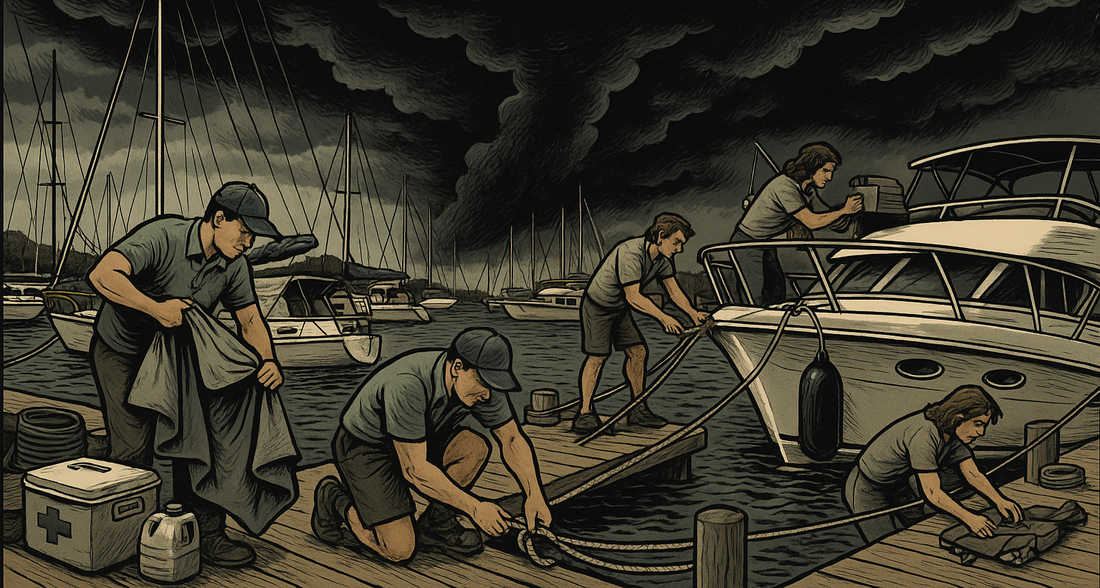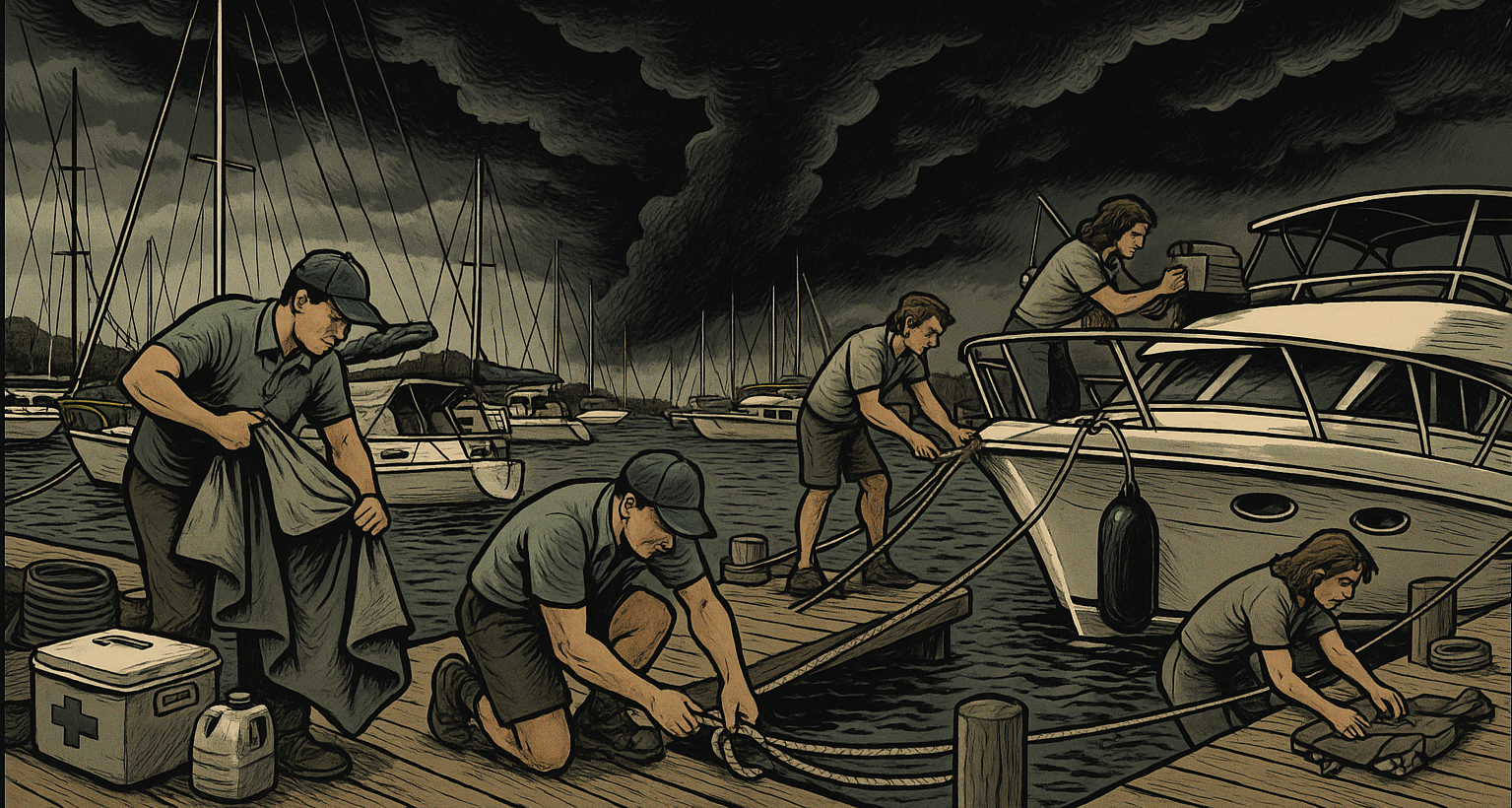Preparing Your Boat for Hurricane Season: What You Can’t Leave Until Tomorrow
If you live in Miami, Fort Lauderdale, or anywhere along the Atlantic coast, you know that the end of summer doesn’t just bring cooler air—it also marks the beginning of something far more serious: peak hurricane season.
And when it comes to tropical storms, there’s no room for improvisation.
-
- Every year it’s the same story: boats adrift, snapped lines, dead engines, and owners scrambling the day before an official warning is issued.
But the problem isn’t the hurricane itself.
The real issue is not preparing in time.
- Every year it’s the same story: boats adrift, snapped lines, dead engines, and owners scrambling the day before an official warning is issued.
Why Preparing Your Boat Is More Than Just a Safety Measure
When a hurricane is on its way, there are no second chances.
Your boat might represent a major investment, a passion, or even your livelihood. But if you skip a few essential steps before the storm hits, you could lose it all—fast.
And while many believe that tying up the boat a little tighter and locking things down is enough, the truth is that storm prep requires a complete plan.
Let’s break it down.
1. Hull Inspection: The Foundation of Safety
Think of the hull like the skin of your boat.
Any cracks, weak spots, or old damage left unchecked can fail under pressure.
- Before you haul out or leave your boat docked:
- Look for visible cracks, damage, or delamination.
- Check for blisters or signs of osmosis.
- Clean off all marine growth or barnacles.
- Apply antifouling or a protective coat if needed.
It might seem minor now, but a small leak today could become a major breach tomorrow.
2. Engine Ready: Non-Negotiable
The engine is your boat’s beating heart—especially if you need to move quickly or evacuate to a safer location.
Before the critical season hits:
- Change the oil and filters.
- Inspect fuel lines for leaks or wear.
- Flush the cooling system with fresh water.
- Test the engine—make sure it starts easily and runs smoothly.
An engine failure at the wrong moment isn’t just frustrating—it’s dangerous.
3. Electrical System: The Hidden Risk
Salt air, humidity, and neglect are a deadly combo for your boat’s electrical system. And during a storm, one loose wire or short circuit can trigger disaster.
Check the following:
- All wiring and connections for corrosion or wear.
- Clean and protect terminals with anti-corrosion spray.
- Ensure batteries are fully charged, or disconnect if the boat will be inactive.
Also, confirm that your lights, bilge pump, and emergency electronics are working perfectly.
4. Smart Docking: More Than Just Ropes
90% of marina damage during storms is caused by poor mooring, not waves. Boats break loose, slam into others, and cause chain reactions.
Use strong, good-quality lines in excellent condition.
But most importantly: use proper fenders.
We’re not talking about rigid or outdated fenders that barely cushion impact.
We’re talking about serious, high-performance inflatable fenders—the kind that absorb pressure and prevent real damage.
A growing number of experienced sailors now trust products like Ocean Buy’s premium Kevlar-reinforced inflatable boat fenders.
They’re built to handle serious impact, available in multiple sizes, and specifically designed for yacht owners who don’t take chances with their equipment.
5. Emergency Gear: No Room for “Maybe”
This isn’t about avoiding fines. It’s about keeping yourself, your family, and your crew safe:
-
Make sure all life jackets are in good condition and readily accessible.
-
Replace expired flares.
-
Check that fire extinguishers are charged and easy to reach.
-
Test your radio and communications gear.
-
Keep your anchor and emergency lines ready in case of last-minute mooring.
6. Have a Real Contingency Plan
Having a plan isn’t being paranoid—it’s just smart.
-
Where will you take your boat if evacuation is advised?
-
Do you have a secure dry dock, or will you rely on a marina?
-
Who can step in to help if you’re away or unable to act?
Write it down. Share it. Don’t assume everyone will just “figure it out.”
Storm Prep Is Peace of Mind
This isn’t about meeting insurance requirements.
It’s about sleeping well, knowing you did everything possible.
Hurricanes are unpredictable.
But your preparation doesn’t have to be.
And remember: boats don’t usually break during the storm.
They break because someone didn’t prepare them properly before.



